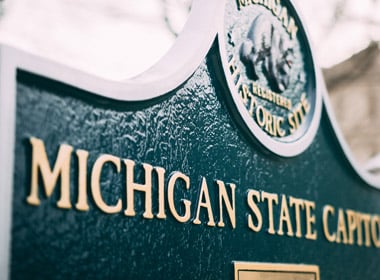The State of Michigan House of Representatives passed a law last week that allows online gambling through the three Detroit-area casinos and the full complement of 23 Native American casinos in the state. Duran Martinez, better known in Michigan for his show about hunting, fishing, and the great outdoors in general expressed his support for the new law: “If you are going to do it online, keeping it local and keeping it here for us, definitely could be better than letting people go out of state and doing it.”

In this context, “doing it” refers to online gambling. Mr. Martinez’s statement reveals that the state House considered financial implications of failing to pass an online gambling law above all other considerations. The law is seen as similar to the bonus codes online gamers use to access the beneficent bonuses casinos offer online providing a financial windfall to the state and to Detroit proper.
Bureaucracy
The procedure set forth in the Michigan legislation requires the land based casinos to apply for a license to offer casino games online. It would be easier for the Detroit area casinos to get started on legal online gambling. They are expected to be ready by 2019. The tax rate for online gambling is set in the law at 8% with 55% of the proceeds earmarked for Detroit and the remaining 45% reserved for education and transportation.
The Native American casinos will have to change existing pacts or develop new ones in order to be eligible to apply for an online casino license.
State Has a Great Need for Money
Michigan, like so many other states in the US, is strapped for money and needs the expected largesse from newly legalized online gambling to help assuage the shortfall the state treasury has to contend with year after year.
Financial Need versus Problem Gambling
There was strong but ultimately ineffectual opposition to the new legislation. Mike Stratton, a therapist whose primary cohort of clientele are addicts, not just to gambling but to many other addictive activities, stated that “…the chances are that there are going to be a lot more people who develop a problem or issue with it.” He reiterated the idea that gamblers of any type, whether they gamble online or at land based casinos, at casinos, or racetracks, or through the state lottery, have to set strict limits for their gambling practices and have to stay within those limits no matter what.
The sharp criticism against online casino gambling seems to ignore these facts: people gamble illegally when they can’t do so legally; the state already sanctions legal land based casino gambling; the state runs a successful lottery; and the state also allows gambling on horse racing.
So, problem gambling has always been a problem in Michigan and everywhere else where people could gamble illegally if they wanted to, long before the idea of legal gambling at online casinos came up. The only real difference is that online gambling is so easy and convenient, making it likely that some people who never had a gambling problem might develop one gambling online.
Legislation Spurred on by US Supreme Court
The legislation had been on the docket since at least January but was stalled in the state House. It was revived when it was applied more loosely to the Detroit area casinos and the Native American casinos and also because the US Supreme Court struck down the Professional and Amateur Sports Protection Act, generally known as PASPA, stating that it was unconstitutional.
Thus, sports betting may now become legal in the 46 states that had been legislated out of sports betting by PASPA. The issue was sent to state legislatures where the constitution says it belongs.
As in every one of the other 46 states frozen by PASPA, Michiganders have long bet on sports illegally. The new law allows the full gamut of casino games online plus sports betting.
Online Casinos but Based on Land
Although the casinos would be online, the equipment used to offer online gambling must be located in the operating casino. The law stipulates that any casino that receives an online permit must take a full year to develop its online casino.
Betting across Jurisdictions
A major aspect of the law is that agreements can be made between different jurisdictions. This is necessary because many gamblers will live outside of the jurisdiction where the online casino is physically located.
The state set $800,000 as the fee for applying for an online casino license and for keeping the license for five years. The renewal fee is not mentioned in the law so it may go up or come down depending on how successful the online casinos are. The online casinos are specifically to be adjuncts of already existing land based casinos. This means that the thousands of online casinos that could have entered the market in Michigan will continue to be frozen out of the market.
The idea behind that decision is that it is much easier to keep track of what is happening at 26 online casinos legally operating in the state rather than regulating hundreds or thousands of casinos, based overseas and indifferent to the governmental needs of the State of Michigan.
Waiting for the Senate
The legislation passed the state House of Representatives but is not yet the law of the land. It also has to pass the state Senate which will likely take up the subject only in the fall. So, there is still some doubt as to what the law will ultimately look like.
Sports betting also needs a third layer of approval to come from the state Gaming Control Board. So, as much as the new law is good news for advocates of online casino gambling in Michigan, it is far from a done deal.





